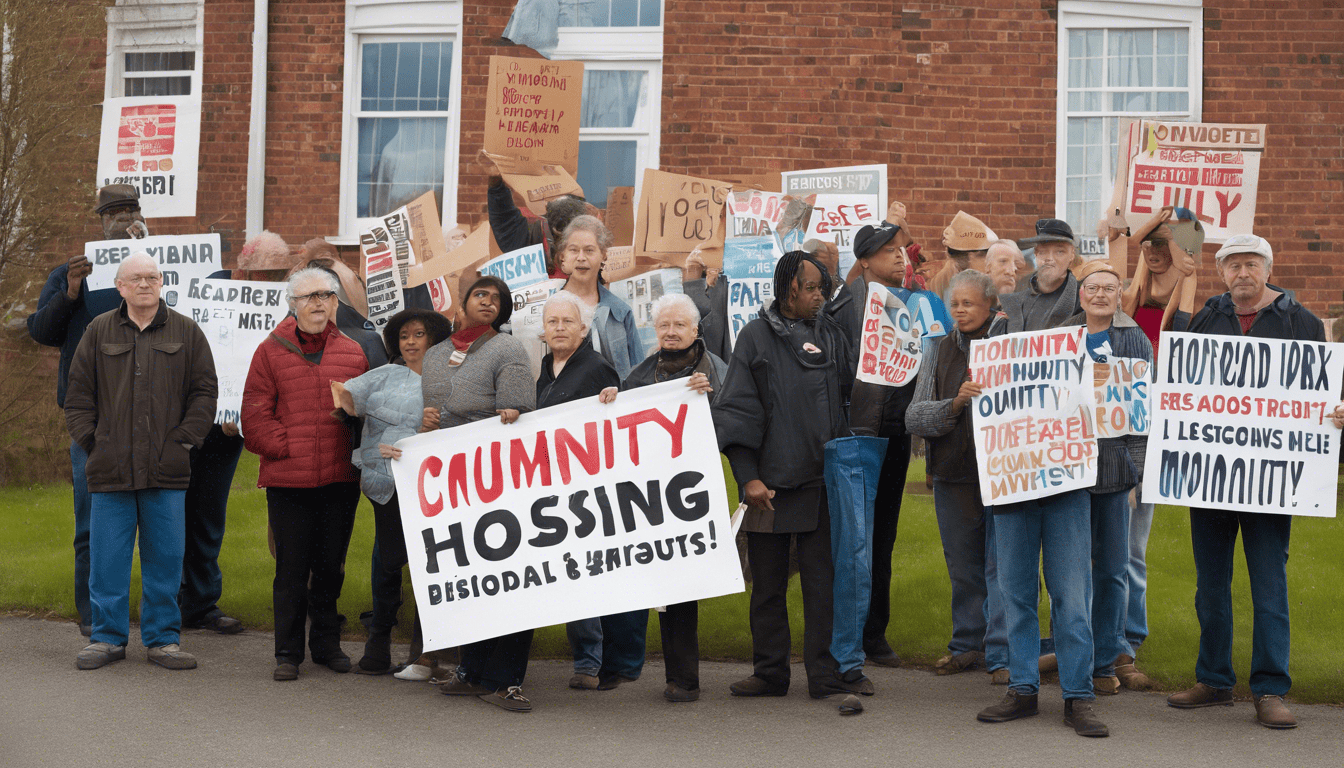Residents of East Durham are uniting their voices in a petition aimed at Durham County Council to tighten controls on houses in multiple occupation (HMOs), aiming to combat the conversion of family homes into rentals that cater primarily to large groups of tenants. This initiative, which has already garnered 153 signatures, seeks to raise public awareness on new HMO applications that are currently lacking adequate oversight in comparison to those in the city center (Durham County Council, 2024).
Local councillor Kevin Shaw has echoed the community’s concerns, pointing out the alarming increase in HMO applications in some disadvantaged areas of East Durham. Despite these anxieties, the council maintains that the ratio of HMOs in East Durham remains low, thus deeming extensive regulation unnecessary. However, locals argue that the situation is deteriorating, citing escalating issues such as declining property values, rising anti-social behavior, and crime associated with the influx of HMOs (Shaw, 2024).
Legal stipulations require landlords to obtain planning permission to establish HMOs accommodating over six residents. Moreover, the council has the power to enforce additional licensing or require planning approvals in areas where HMOs are causing notable adverse impacts. The council’s planning head noted that while stringent measures have been introduced in Durham City due to its high concentration of HMOs, East Durham does not currently face similar challenges, resulting in a lack of urgency from the council’s perspective (Durham County Council, 2024).
This situation sheds light on the intricate dynamics of community living and the potential impact of HMOs on residential neighborhoods, raising critical questions about the balance between housing needs and community integrity.
Key Takeaways
- Residents in East Durham are advocating for stronger regulations on HMOs amid rising concerns over community impact.
- The Durham County Council argues that the proportion of HMOs in the area is low, limiting their justification for stricter controls.
- The petition underscores the perceived negative consequences of HMOs, such as antisocial behavior and declining property values in the community.
The Impact of HMOs on Community Dynamics
The recent petition by residents in East Durham for the Durham County Council to re-evaluate its stance on regulating houses in multiple occupation (HMOs) highlights rising community tensions regarding the conversion of traditional family homes into rental properties. With 153 signatures collected, the petition reflects a growing unease over the perceived impact of HMOs on local neighbourhoods, particularly in economically disadvantaged areas. Local councillor Kevin Shaw emphasized that the increase in such applications is concerning, as it can lead to further decline in community coherence and local amenities. The council, however, maintains that the proportion of HMOs remains low and argues that the current regulatory framework is sufficient, pointing out existing selective licensing schemes in certain regions. Critics argue that these measures have not alleviated problems associated with lower property values and growing anti-social behaviour linked to the proliferation of HMOs. While planning permission is a requirement for converting properties to accommodate over six individuals, it appears the council is hesitant to impose stricter regulations in light of specific area assessments that currently show lower demand for such measures in East Durham compared to Durham City. As the debate continues, residents remain concerned about how these housing trends could reshape the social landscape of their communities.
The Call for Enhanced HMO Regulations in East Durham
The conflict surrounding HMO regulations in East Durham draws attention to the broader implications of property management within vulnerable communities. Many residents argue that without enhanced oversight, the current trend could undermine the fabric of these neighbourhoods, which are already grappling with various socio-economic challenges. Councillor Shaw’s remarks indicate a recognition that the housing market is not merely about property numbers but also about the qualitative impact living arrangements have on local residents. Some community advocates stress the importance of not only maintaining property values but also ensuring that family homes remain accessible for long-term residence, which they fear is at risk due to the influx of HMOs. The idea of establishing more robust frameworks for HMO applications is gaining traction as residents seek to protect their communities from potential declines in living standards and heightened crime rates, which they attribute to the excessive concentration of rental properties. As the local government considers its position, the voices of East Durham residents reflect a significant call for a more balanced approach to housing that prioritizes community well-being alongside economic interests.
Please ask us questions via WhatsApp, email, or direct messaging.





